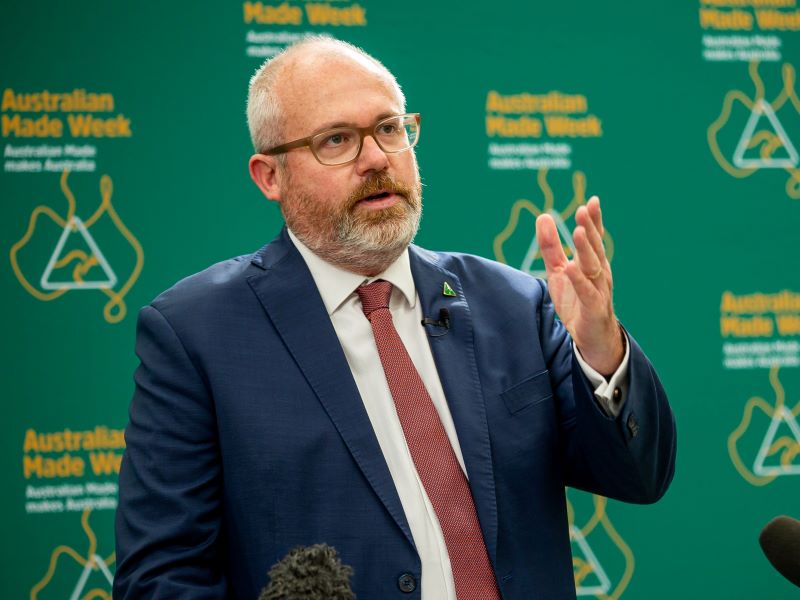Achieving the objectives of federal industrial policy is fundamental to the government also achieving its emissions reduction and lower-cost energy commitments, the assistant minister for manufacturing Tim Ayres says.
Industry policy and climate policy have always been intertwined, but with the enabling legislation for the National Reconstruction Fund (NRF) currently being considered by the Parliament, points of friction between government and the Greens intensified this week.
In this episode of the Commercial Disco, Senator Ayres says market intervention through the structures of the NRF is necessary at a fundamental level, to both ensure the future economic well-being, as well as to meet those emissions targets.
Australia ranks 91st in the world on the Harvard Atlas of Economic Complexity Index (tucked between Kenya and Namibia on the ranking), and for the past 30 years has endured an uninterrupted slide down this index economic complexity.
Senator Ayres says the term ‘market failure’ is simply not strong enough to describe the “perversity of what has happened in the Australian economy in the past 20 to 30 years”.
“The offshoring under the last government of the automotive industry [cost] 40,000 jobs, but industrial capability was offshored as well [as part of that process] and that has been enormously damaging for our economy, our welfare and our future capability,” Senator Ayres said.
“So yes, there is a requirement for government to step in. But with the NRF it’s a different kind of model, [with] … co investments, loans, and guarantees.
“That requires a different kind of government, private sector, investment community partnership. That is new. It is a more modern approach to industry policy that has been taken in the Australian context.”
It is somewhat incidental that Senator Ayres also addressed a Sweden Australia Sustainable Mining summit at the Swedish embassy in Canberra on Wednesday. But it is certainly worth noting that Sweden has spent the last 30 years ranked in the top ten of Harvard Atlas of Economic Complexity Index. (It is currently 8th but has ranked as high as 5th.)
It can’t be a coincidence that according the World Bank, investment in R&D in Sweden as a proportion of GDP is at 3.53 per cent is almost double the investment in R&D in Australia (1.83 per cent). Australian investment in R&D has been trending down since 2008 (when it was 2.4 per cent) while Swedish investment in R&D has been trending sharply up since 2014.
In fact, if Australia could just try to be average, we would be better off. The world investment in R&D as a percentage of global GDP is 2.63 per cent and trending sharply up.

This is where Senator Ayres insists market intervention is urgently required in order to re-industrialise. In doing this, the industry priorities have been targeted to make sure that Australia participates in decarbonisation opportunities.
“Achieving our industry policy objectives is critical to us achieving our objectives in terms of emissions reductions and making energy cheaper and making industry more efficient and more competitive,” Senator Ayres said.
“We will listen to sensible proposals from the Greens and the other crossbenchers, and we’ll consider those as we move through this. But as a starting proposition, this is the re-industrialising the Australian economy.
“Building an effective renewables and low emissions technology sector alongside the $20 billion rewiring the nation fund … these are critical to achieving our missions and energy ambitions.”
Do you know more? Contact James Riley via Email.

